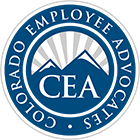It can be difficult to speak up in the workplace when there are illegal or unethical activities because you may be afraid to lose your job. A person who reports this behavior is called a whistleblower and there are protections in place to ensure that you are not retaliated against for bringing attention to these matters.
Whistleblowers
Many organizations, but not all, have policies that require or encourage reporting and specifically prohibit retaliation.
As a whistleblower, you may report activities that include fraud, safety violations, harassment or other issues. There are two options for reporting. Some whistleblowers report internally through their human resources department, their compliance department or to their manager. Your company may have a reporting hotline or an online reporting platform to submit concerns.
Other whistleblowers report directly to external regulatory agencies or to the media, both through traditional printed media and online through social media. You may be asked to participate in an investigation.
Retaliation
Despite policies and procedures that prohibit retaliation, if your employer takes adverse action against you in response to your report, you may have an employment law claim.
Retaliation can take many forms, but often the whistleblower is terminated or demoted, harassed or intimidated, and may be isolated from other colleagues and supervisors.
You may also face an unwarranted negative performance review, denied training or advancement opportunities or your employer may make negative comments about you in your industry. This can make it difficult to find another position if you leave your current employer.

